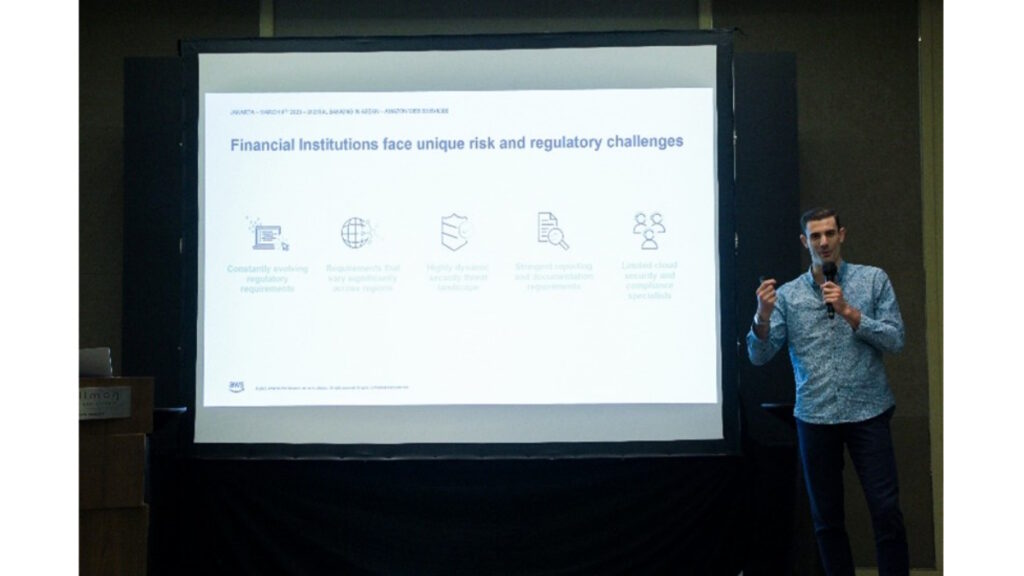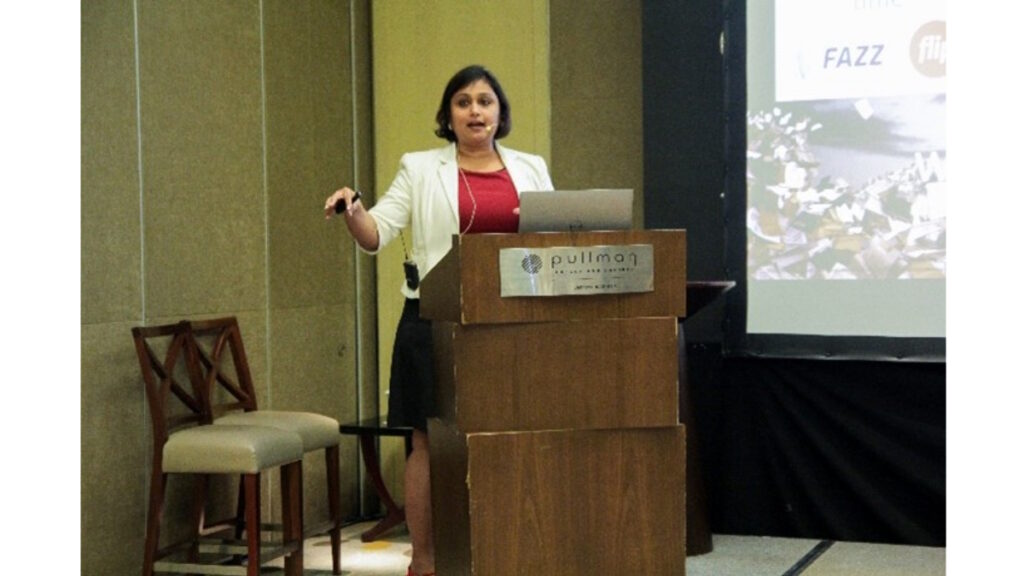Unlocking next-generation digital banking for Indonesia
As digital transformation continues to reshape the banking industry, Indonesia has seen a dramatic increase in digital banking adoption. According to McKinsey’s Personal Financial Services 2021 survey, about 78% of Indonesian customers now use digital banking actively, a significant increase from 57% in 2017. To enable a more competitive, adaptive, and efficient banking environment in response to the dynamic global economy and technological development, the Banking Supervision of Indonesia’s Financial Services Authority (OJK) has issued 2 new regulations for digital banks in Indonesia.
Next-generation digital banking in Indonesia
In the recent Temenos Digital Banking Forum Indonesia, with subject matter experts Arfianto Ramadhian, Senior Vice President – Digital Banking, Bank BJB, Haruka Ikegami, President Director, PT Saison Modern Finance, Sutjahyo Budiman, Chief Executive Officer, Fortress Data Services, we explored how economic dynamics have changed how consumer expectations and the way banks operate, as well as keys to successful cloud banking and strategies to unlocking SME banking in the digital world.

Customers expect personalized services, fast query resolution, and on-demand accessibility across channels. As such, banks will need to curate experiences, products, and services to customers mind-state and needs. In addition, banks will also need to act as partners to their clients where both consumer and commercial customers will enter more educational relationships, with banks helping them achieve life goals. What this means for Indonesian bankers is that they will need to be open to digital transformation to adapt and cater to the increasing needs of their customers to thrive and stay ahead of the competition.
State of digital transformation in APAC
Luca Durisotto, Financial Specialist Asia, Amazon Web Services explains that the pandemic has accelerated the demand for digital services. As we emerge from the pandemic, digitization has taken a key role in banking. To address the changing expectations of today’s Indonesians, banks need to be able to reposition themselves to gain a competitive advantage.
Globally, superior digital experience has become table stakes, and these high-bar expectations now extend to financial services. Customers, regulations, and technology are fundamentally changing how banks and other financial institutions operate. Following similar moves in the UK and Europe, FI industry participants (including regulators) in APAC are now taking concrete steps to discover what digital banking means to them.

Digital Banking in the Cloud
Organizations around the world are moving to a cloud-based infrastructure to increase IT agility, nearly unlimited scalability, improve reliability, and lower costs. Moving to the Cloud allows customers to innovate faster because they can focus their highly valuable IT resources on developing applications that differentiate their business and transform customer experiences instead of the undifferentiated heavy lifting of managing infrastructure and data centers.
With the great momentum around the region for cloud banking, what are the essential keys for successful cloud banking? Zannettos Zannettou, SaaS Principal Consultant, Temenos suggests that there are seven keys for successful cloud banking:
1. Security – Customers trust their Banks to keep their data safe and sound.
2. Data residency, sovereignty & localization – Cloud services need to provide secure and compliant Cloud Services to Banks and accommodate the right compliance features through technology when it comes to storing sensitive data.
3. Migration – It is crucial that Banks critically assess the path to live on Cloud, and thoroughly evaluate the journey with the help of the right partners.
4. Resilience – Operational excellence of the Cloud support services – especially Security Operations Centre & Network Operations Centre monitoring and controls, coupled with automated and AI-assisted tasks that can detect and preempt operational issues are absolute key factors to do banking resiliently on the cloud.
5. Hyper scalability – Banks need to be able to harness the power of cloud-native technologies like containers and serverless components to be able to scale up and down the banking services seamlessly – depending on the demand.
6. Multi-Cloud – Banks are progressively opting for solutions that are portable and cloud agnostic and can be deployed on multi-cloud with minimal impact on performance or security.
7. Regulation – Banks have to comply to the regulatory needs of the land. And to do so, they need to be able to govern the Cloud services and report on the right metrics for Data, Risk, and Compliance matters.
All things considered; cloud banking is a game changer that can bring unprecedented growth for the Indonesian digital banker. With increasing customer expectations, the future of banking has no borders and boundaries. Indonesian banks need to be open to cloud-native platforms to create endless opportunities for Indonesians.
SME banking in the digital world
Hearing from Rohini Goyal, Regional Head of Digital Solutions, Temenos, with the onset of technology enabling new forms of banking, SME banking services will get more specialized to broader needs of the business being integrated into banking and products/services and advice being more personalized to the specific business, and we are already starting to see evidence of that.

For example, considering the new functionality of “Optimised Reality”, as touchpoints become more fluid, varied and responsive, banks need to curate experiences, products, and services to customers mind-state and needs.
Small business owners are increasingly tech-savvy and expect retail-like experiences when running their business. As SMEs support a rebound in global growth the opportunity for banks to win on experience has never been greater. But high-touch SME banking is resource intensive, and the risks are higher. The key to unlocking SMEs’ growth is delivering more tailored services and recommendations. But personalization is hard when data is everywhere, often coming from multiple new applications, and when bank resources are tight. Cash is king – especially as low rates persist. Optimizing cashflows, putting working capital to use, and getting paid faster are critical for SME success. With a single view of business, backed up by reliable data and smart analytics, banks, and SMEs can work together to find creative funding solutions, based on greater insights into risks and cash flow.
This implies that for the modern Indonesian digital banker, from a system planning perspective, the future Indonesian banks must shift from complex legacy banking to open and sustainable ecosystem banking as societies refocus their priorities away from economic growth at any cost to goals that prioritize environmental, social and corporate governance goals. The emphasis would be placed on banking the unbanked as banks will look to serve the 139 million adults in Indonesia, who fall outside of the traditional banking system.
From an ethical perspective, the ramifications suggest a trend towards educational relationships, with banks helping customers achieve life goals and customers co-creating banking products based on their unique requirements. Banks should also facilitate by bringing commercial clients and partner businesses together through P2P-style networks, to provide clients with technological tools that allow instant access. A holistic approach that governs bias in investment decisions will need to be built. To attract and engage commercial clients across the board, diversity of workforce
and investments must be ensured. This will not only increase empathy but also reduce bias and boost innovation through diversity of thought.
Conclusion
The digital transformation of the banking industry is an ongoing process that requires banks to keep up with the latest trends, regulations, and technology. Indonesia is no exception to this global phenomenon. For digital banking to thrive in Indonesia, banks must prioritize customer experience, innovation, and personalization. The industry needs to pivot towards a sustainable and open approach, serving those who fall outside the traditional banking system. Cloud-based infrastructure holds tremendous potential for Indonesian digital bankers, and banks can gain a competitive advantage by offering specialized services for SMEs. Banks that can adapt to these new trends will be in a strong position to succeed and fulfil customer needs in the Indonesian market.
Conclusively, Indonesian bankers need to be aware that a) With the rise of consumers’ expectations in relation to lifestyle banking and embedded finance, there is a compelling need for banks to progress beyond digitalization to ecosystem banking to stay ahead of the competition, b) cloud banking is a game changer and Indonesian banks need to be open to cloud-native platforms to tap on new competitive advantages it can bring, and c) As SMEs support a rebound in global growth, it is a great opportunity for banks to include tapping into the unbanked and underbanked in order to access new market segments that have otherwise been inaccessible before.
The Temenos Digital Banking Forum Indonesia has challenged the perspectives of what a next-generation digital bank could look like as Indonesia emerges out of the pandemic. We now look ahead to bringing digitalization to Indonesians and the next leap ahead as Indonesia repositions itself for the digital age. See you at Temenos Digital Banking Forum 2024!